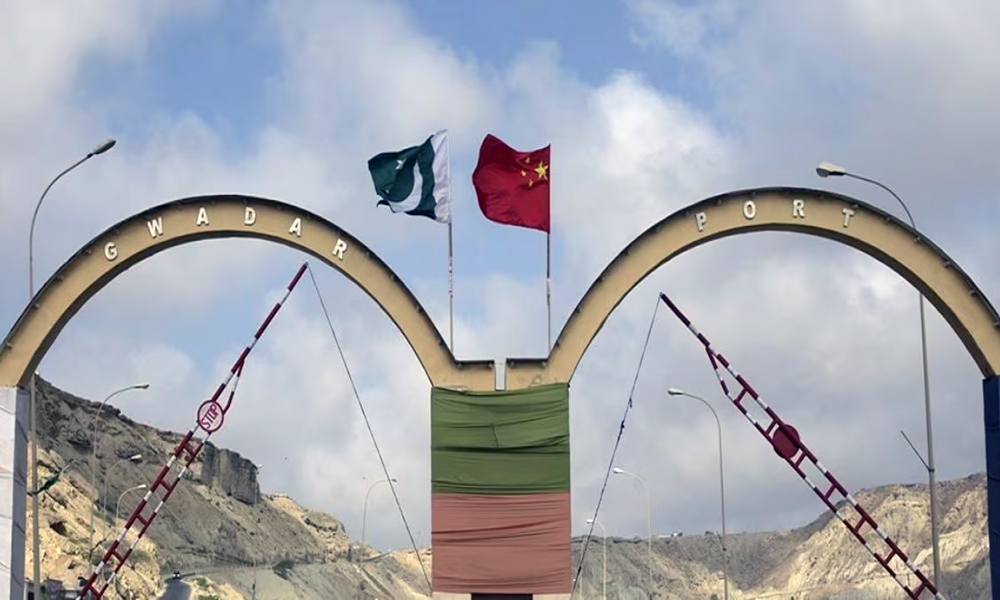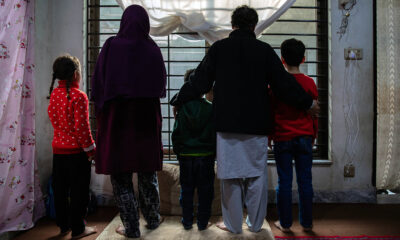Business
Liquidity crisis at core of Afghanistan’s economic challenges: SIGAR

Afghanistan continued to face a severe liquidity crisis this quarter with access to physical bank notes constrained and banks facing major liquidity challenges due to declining economic activity, lack of trust in the banking center among Afghans, and an inability to transact internationally.
The US Special Inspector General for Afghanistan (SIGAR) said in its latest quarterly report that Da Afghanistan Bank (DAB), Afghanistan’s central bank, will require significant technical support from the international community to tackle these challenges.
The report stated that prior to the Islamic Emirate of Afghanistan’s (IEA) takeover in August last year, Afghanistan’s financial system had been underdeveloped relative to the context of its growth in recent decades, with a low assets-to-GDP ratio and a heavily dollarized banking system.
Approximately 60% of deposits in the country were made in foreign currency. The report stated that in this monetary environment, maintaining financial stability requires both domestic currency (AFN) liquidity and, more importantly, foreign exchange (FX) liquidity.
However, DAB is limited in its ability to control the AFN monetary supply and value due to several factors including the lack of domestic technical capabilities to print currency, which Afghanistan outsources to foreign companies.
“For years, DAB would prop up the value of the afghani (AFN) by regularly auctioning US dollars pulled from its foreign reserves. Prior to August 2021, Afghanistan’s central bank reportedly received quarterly shipments of $249 million in US banknotes from its foreign reserves. This stopped after the Taliban (IEA) takeover prompted the United States to place a hold on US-based Afghan central bank reserves.
“The loss of these US dollar transfers and other sources of foreign currency plunged Afghanistan’s financial system into free fall,” SIGAR stated.
With Afghanistan’s international reserves, including banking sector foreign exchange deposits at the DAB, frozen; the SWIFT system and international settlements suspended; grant transfers suspended; and AFN liquidity printing interrupted, a dramatic adverse shock in the financial and payment systems ensued.
The resulting liquidity crisis has caused salary disruptions for hundreds of thousands of government employees, teachers, and health-care workers, and has imposed limitations on the operations of international aid groups in the country.
“The banking system is totally paralyzed. The central bank is not operating,” according to Robert Mardini, director general for the International Committee of the Red Cross as cited by SIGAR.
Mardini said that his organization is instead paying 10,000 doctors and nurses via the informal hawala money-transfer system.
This has also contributed to a worsening domestic credit market. In the absence of international support, banks have ceased extending new credit to small- and medium-sized enterprises.
In recent months, the increased supply of US dollars from humanitarian channels, averaging around $150 million per month, has helped stabilize the value of the afghani.
However, these humanitarian channels are viewed as stopgap measures that are an insufficient substitute for the normal functioning of a central bank, SIGAR stated.
In her March 2 statement to the UN Security Council, UNAMA head Deborah Lyons cited the “lack of access to hard currency reserves, lack of liquidity, and constraints on the central bank to carry out some of its core functions” as key challenges to reviving the Afghan economy.
Total international DAB reserves were $9.76 billion at the end of 2020, according to the most recent data available to the IMF. Of this amount, $2 billion was deposited in financial institutions in the United Kingdom, Germany, Switzerland, and the United Arab Emirates.
Some $7 billion in DAB reserve funds deposited at the Federal Reserve Bank of New York are now frozen by the US government.
Economists at New York University and the University of Chicago suggested that if central-bank reserves were placed directly with households or with other financial intermediaries, it could enhance the desired increase in liquidity.
Liquidity is a concern for households as well as for the banking system and businesses. Raising household liquidity in Afghanistan is challenged by rising unemployment, the fact that only 10–20% of Afghans have bank accounts, the uncertain status of DAB’s electronic payment system and the declining volume of market transactions as reflected in the country’s declining GDP.
SIGAR stated however that the Biden Administration is currently exploring possible avenues for disbursing $3.5 billion of the frozen assets for humanitarian relief efforts, possibly through a separate trust fund or by providing support through the United Nations or another enabling organization.
US Special Representative for Afghanistan Thomas West has stated that the $3.5 billion could alternatively contribute toward “the potential recapitalization of a future central bank [in Afghanistan] and the recapitalization of a financial system.”
The move to freeze assets meanwhile sparked outrage throughout Afghan society, including among leaders unaffiliated with the IEA.
Shah Mehrabi, a long-time member of the Afghan central bank’s board of governors, called the decision “unconscionable” and “short-sighted.”
Mehrabi argued that the central bank should be treated as independent of the IEA regime, and that depriving the bank of its reserves could lead to “total collapse of the banking system” and further hurt millions of Afghans suffering in the economic and humanitarian crises.
The order to freeze assets has also drawn criticism from US and international policy analysts, human rights groups, lawyers, and financial experts, SIGAR reported.
Analysts have expressed concern over both the seizure of the reserves and the reported proposals to provide those funds in the form of humanitarian assistance.
Paul Fishstein of NYU’s Center on International Cooperation argues that the executive order gave inadequate attention to the macroeconomic collapse of the country.
Fishstein said the release of the central bank’s reserves could instead be used to restore unnecessary exchange rate stability and ease the liquidity crisis.
William Byrd of the US Institute of Peace (USIP) said that even if only half of DAB’s total reserves are devoted to support its basic activities as a central bank, it would “provide an opportunity to make a start toward stabilizing the economy and private sector.”
Business
Uzbekistan approves feasibility study agreement for Trans-Afghan Railway
The agreement builds on a tripartite document signed on July 17, 2025, which outlined cooperation on preparing a feasibility study for the Termez–Kharlachi railway corridor.

Uzbekistan has ratified an international agreement to prepare a feasibility study for the Naybabad–Kharlachi section of the Trans-Afghan Railway, formalizing its participation in the project.
President Shavkat Mirziyoyev signed a decree on February 4 approving the agreement.
The framework agreement involves the transport ministries of Uzbekistan, Afghanistan and Pakistan and provides for joint work on a feasibility study for the proposed railway line between Naybabad and Kharlachi. The section forms part of the wider Trans-Afghan Railway project aimed at strengthening transport links between Central and South Asia.
Under the decree, Uzbekistan’s Ministry of Transport has been designated as the competent authority responsible for implementing the agreement. The Ministry of Foreign Affairs has been tasked with notifying Kabul and Islamabad that Uzbekistan has completed the internal procedures required for the agreement to enter into force.
The agreement builds on a tripartite document signed on July 17, 2025, which outlined cooperation on preparing a feasibility study for the Termez–Kharlachi railway corridor.
The planned route is expected to run through Termez, Naybabad, Maidanshahr, Logar and Kharlachi, providing a transit corridor through Afghanistan.
The feasibility study will be commissioned by the Tripartite Project Office for the Development Strategy of International Transport Corridors under Uzbekistan Railways.
Established in Tashkent in May 2023, the office also operates branches in Kabul and Islamabad to coordinate the project.
First proposed in 2018, the Trans-Afghan Railway was initially projected to carry up to 20 million tons of cargo annually at a cost of about $5 billion. Cost estimates have since been revised.
In July 2022, Uzbekistan Railways cited an estimate of $4.6 billion with a construction period of up to five years, while Pakistan’s Ministry of Railways put the cost at $8.2 billion in December 2024.
More recent assessments have placed the overall cost at around $7 billion, with a public-private partnership under a Build-Operate-Transfer model among the options under consideration.
Business
Afghanistan seeks expanded ties with Russia in energy, mining and infrastructure
TASS reported that Kabul is also prepared to cooperate with Moscow in the extraction of mineral resources.

Afghanistan has expressed strong interest in broadening trade and economic cooperation with Russia, with a particular focus on energy, mining and infrastructure projects, according to Russia’s TASS news agency.
In an interview with TASS, Afghanistan’s Ambassador to Moscow, Gul Hassan, said Kabul is keen to import oil and gas from Russia as part of efforts to deepen bilateral economic ties.
He noted that trade relations between the two countries are progressing and that, if key obstacles—especially banking restrictions—are addressed, Afghanistan could also import medicines, industrial goods, grain, vegetable oils and other commodities from Russia.
In return, the ambassador said Afghanistan is ready to export fresh and dried fruits, vegetables, medicinal plants, carpets and mineral resources to the Russian market, adding that expanding export-import operations could significantly increase bilateral trade volumes.
He also revealed plans to open an exhibition of Afghan products in Moscow, which he said would help boost trade turnover.
TASS reported that Kabul is also prepared to cooperate with Moscow in the extraction of mineral resources.
Hassan described the economy as a central pillar of Afghanistan’s foreign policy, emphasizing the government’s goal of positioning the country as a key link in regional economic integration and attracting foreign investment.
He noted that Russian companies have long shown interest in Afghanistan’s industrial, mining and infrastructure sectors.
The ambassador further told TASS that Russian firms are already in talks with relevant Afghan authorities on the construction of small hydroelectric power plants.
Representatives of several Russian companies have reportedly visited Afghanistan and held meetings with officials and technical experts.
According to Hassan, practical steps toward cooperation in the energy and power generation sectors are expected in the near future, pointing to a potential new phase in Afghan-Russian economic relations.
Business
Pakistan, China plan to extend CPEC to Afghanistan, revive trilateral framework
The proposed CPEC expansion into Afghanistan is seen as a move to enhance regional economic integration amid shifting geopolitical dynamics.

Pakistan and China are moving forward with plans to extend the China-Pakistan Economic Corridor (CPEC) into Afghanistan, a strategic step aimed at bolstering regional connectivity and economic cooperation. The expansion, along with the revival of the Pakistan-China-Afghanistan trilateral framework, was discussed in a recent briefing to the Pakistani Senate Standing Committee on Foreign Affairs.
According to Pakistan Today, officials from Pakistan’s Ministry of Foreign Affairs outlined the details during a session in Islamabad, where they reviewed key aspects of Pakistan’s foreign relations, regional developments, and economic diplomacy.
Officials emphasized that Pakistan’s relationship with China remains strong, underscoring the “all-weather” strategic partnership between the two nations. Strengthening ties with Beijing, they stated, continues to be a cornerstone of Pakistan’s foreign policy. This includes unwavering support for China’s position on regional and international issues, particularly the One-China policy and matters related to territorial integrity.
The briefing also touched upon China’s consistent backing of Pakistan in various areas, including sovereignty, economic stability, counter-terrorism, and support for Pakistan’s exit from the Financial Action Task Force (FATF) grey list.
The Kashmir issue was also addressed, with officials noting that China considers it an unresolved matter and advocates for a peaceful resolution in line with UN Security Council resolutions.
The proposed CPEC expansion into Afghanistan is seen as a move to enhance regional economic integration amid shifting geopolitical dynamics. Officials stated that reviving the trilateral framework is part of broader efforts to foster greater cooperation and connectivity in the region, with an eye on long-term stability and prosperity.
The move also reflects both countries’ desire to further integrate Afghanistan into the regional economic landscape, a key element in fostering peace and development.
-

 Latest News3 days ago
Latest News3 days agoAfghanistan to grant one- to ten-year residency to foreign investors
-

 Sport4 days ago
Sport4 days agoIndonesia shock Japan to reach historic AFC Futsal Asian Cup final
-

 Sport5 days ago
Sport5 days agoMilano Cortina 2026 Winter Olympics: What You Need to Know
-

 Sport3 days ago
Sport3 days agoIran clinch AFC Futsal Asian Cup 2026 in penalty shootout thriller
-

 Latest News3 days ago
Latest News3 days agoAfghanistan says Pakistan is shifting blame for its own security failures
-

 International Sports2 days ago
International Sports2 days agoWinter Olympics gain momentum as medal table takes shape
-

 Latest News5 days ago
Latest News5 days agoAfghanistan facing deepening hunger crisis after US Aid Cuts: NYT reports
-

 World5 days ago
World5 days agoUS, Ukraine, Russia delegations agree to exchange 314 prisoners, says Witkoff

























